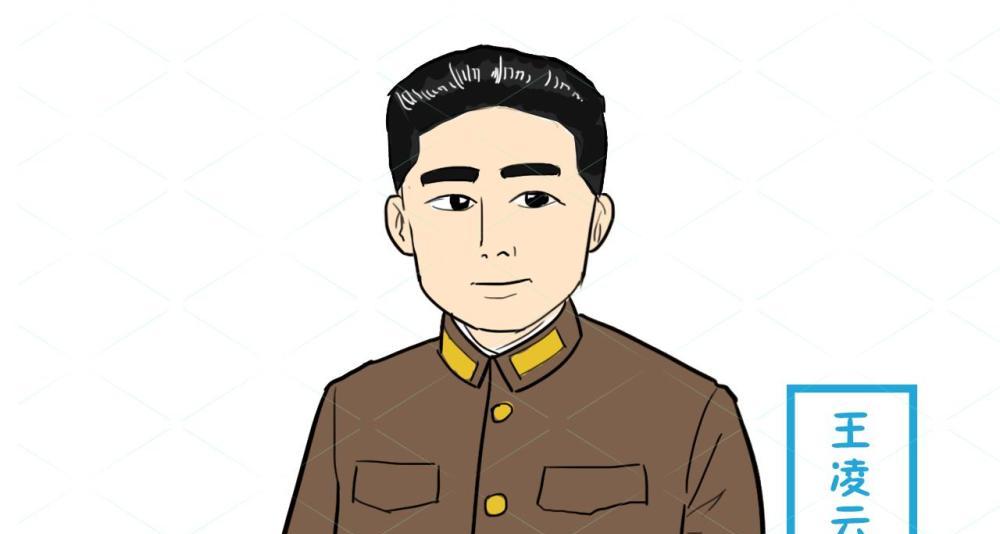During the War of Resistance Against Japanese Aggression, many famous anti-Japanese generals emerged in our country. Some people had been obscure until now, but they became famous in the anti-Japanese battlefield. And the protagonist introduced to you today is like this. Originally a small warlord in Henan, he became a regular army after being recruited by Chiang Kai-shek. During the War of Resistance Against Japanese Aggression, he fought bravely and was awarded the Order of the Blue Sky and White Sun of the Kuomintang. After the Japanese were defeated, he was imprisoned for being reported by his wife, and mysteriously disappeared for 52 years, and his whereabouts are still unknown. Who is this person? He was the famous anti-Japanese general Wang Lingyun.
Wang Lingyun was born in 1899 in Yiyang, Henan Province, nicknamed Xincheng, the character Xianfeng, the father Of wang Haoli was diligent and thrifty, and his mind was open-minded, so he sent him to school early. At the age of 21, Wang Lingyun and his villagemate Zhao Daying went to Wu Peifu Luoyang's Western Engineer Battalion to become soldiers. But only three months later, he found an excuse to sneak out of the barracks and returned to Yiyang to join his mentor Xu Xueyi. Under the arrangement of Xu Xueyi, he entered the Yiyang County Higher Primary School to study.

In 1924, Zheng Guohan, the governor of Yiyang County, was appointed by Yukun as the brigade commander of the Mixed Brigade, and it just so happened that Wang Lingyun also graduated from school, so Zheng Guohan took Wang Lingyun under his command. Later, Zheng Guohan was killed, and Wang Lingyun defected to Wang Jianzhao of Yiyang. In 1930, after years of accumulation, Wang Lingyun was appointed by Wan Xuancai, chairman of Henan Province, as the commander-in-chief of the four counties. During this period, he actively recruited and expanded his army, and the ranks quickly swelled to more than 6,000 people, and he became a small local warlord.
Later, the Kuomintang took a fancy to his army, so in September 1930, Wang Lingyun was recruited by the Nationalist army and became the commander of the 3rd Division of the 20th Road, assisting Yang Hucheng, the commander-in-chief of the 17th Road, in attacking Song Zheyuan, who was entrenched in Luoyang and Xin'an. In December of the same year, Chiang Kai-shek reorganized the 20th Route Army into two divisions, and Wang Lingyun served as the brigade commander of the 225th Brigade of the 75th Division. On August 13, 1937, after the outbreak of the Battle of Songhu, Wang Lingyun led his troops to Shanghai with the 20th Army to participate in the War of Resistance.
On October 16, before the battle, Wang Lingyun was suddenly promoted by Chiang Kai-shek to the rank of lieutenant general of the 76th Division. In the course of the Fushan Anti-Japanese War, Wang Lingyun went into battle shirtless and took the lead, fighting fiercely with the Japanese for four days and nights. After the war, the 76th Division became famous and Chiang Kai-shek was overjoyed, changing the name of his unit to "Fukuyama Unit". At the same time, it was ordered that priority should be given to the replenishment of the 76th Division. After that, Wang Lingyun led his troops to Jiangsu, Zhejiang, Anhui, Jiangxi, Hunan and other places, attacking the Japanese Kou and participating in the Battle of Nanchang and the Battle of Guinan. In March 1943, he led his troops to participate in the Burmese War of Resistance. In 1945, he was awarded the Order of the Blue Sky and White Sun, and later the U.S. Silver Medal of Freedom.
During the Liberation War, Chiang Kai-shek feared that Wang Lingyun would defect to Bai Chongxi, so he sent Song Xilian to seize his power. In 1950, Wang Lingyun, alias Zhang Keming, found a village girl in rural Sichuan to marry, but the village girl discovered his true identity and decisively reported him. Later, Wang Lingyun was captured by the People's Liberation Army and imprisoned in beijing for reform at the Gongdelin War Criminals' Institute in Beijing. On December 15, 1961, Wang Lingyun was pardoned and placed in a commune on the outskirts of Beijing to learn the techniques of fruit cultivation. In 1963, he was appointed as a commissioner of the Secretariat of the Henan CppcC Committee. In 1968, he ran away from home because of his former status as a Kuomintang general. Since then, there has been no news, and his whereabouts are still unknown.